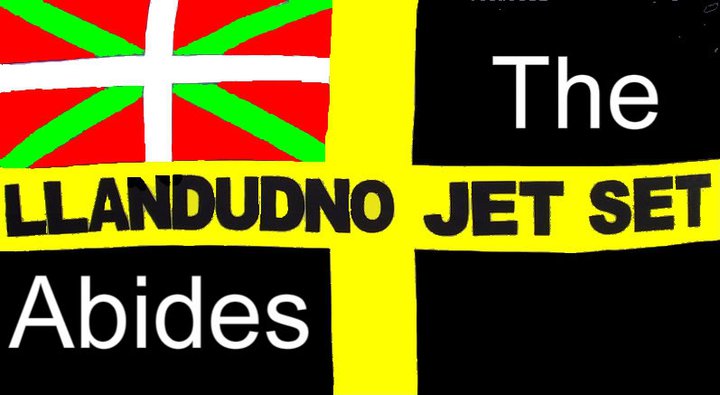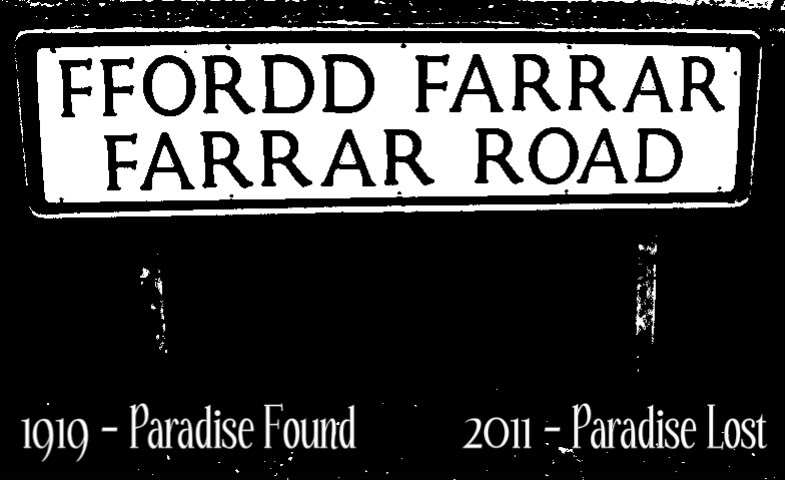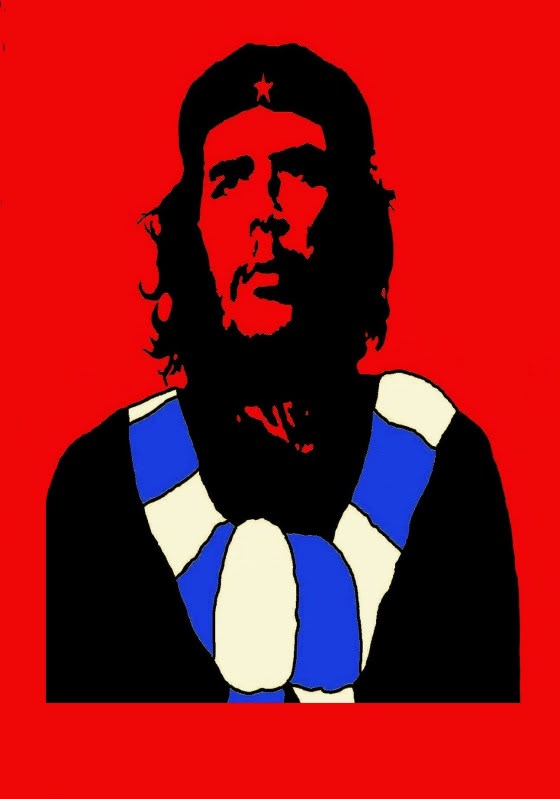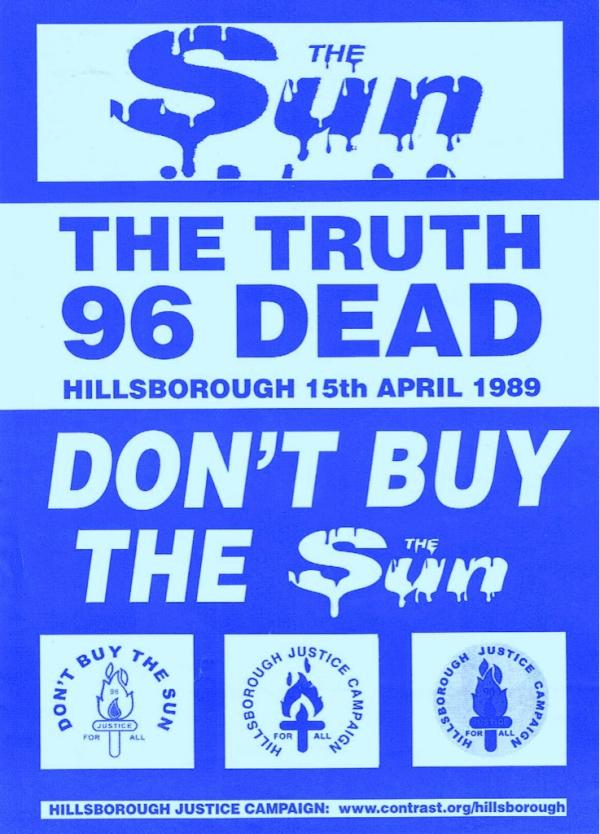It was in the late 1940s when Syd Bevers came up with the idea for a different type of supporters group. He even came up with a topical name for his group of fans and named them The Atomic Boys. Discussing the Boys in later life he recalled the reason for choosing his group’s name, “At the time the atomic bomb was the foremost thing in world history. And, it wasn’t such an inappropriate title for the boys and myself really, for when we went along to all the various grounds, we took the place by storm.”
Syd did not stop with just a name, however, for he also decided that his team would be exotically dressed and would also have a mascot that would be noticed. He arranged for costumes to be made and, when necessary, borrowed. In addition he came up with the idea of a real live duck to play the role of mascot!
The whole concept was conceived at Elland Road, Leeds on 4 February 1946. Again Syd remembered it well and said, “It was a marathon match with Middlesborough. We had drawn the two‑legged FA Cup tie, 5-5 on aggregate and had to play a deciding game at a neutral ground and Leeds was selected. At that game I particularly noticed there was something missing in an England that was recovering from the Second World War and needed something to brighten up spirits generally. And that was colour. I don’t think you’d have known who was supporting who ‑ there was definitely a distinct lack of colour.”
Syd pondered on the matter and then decided “something wanted putting into practice” so on his return to Blackpool, after Blackpool had been defeated 1-0, he got a group of his friends and fellow supporters and told them of his plan. Reaction was very favourable and the name The Atomic Boys was devised. Initially the idea was that everyone in the group had to have a tangerine coat, white trousers and a straw hat. Syd remembered, “It was no problem to get a tangerine coat because all the waiters in town wore white coats so it was just a matter of acquiring one of those and applying a little tangerine dye!”
However, this idea was not too long-lived as Syd thought it made everyone look the same and he certainly did not want that, he wanted his group to be very different and well remembered. So he developed his idea further and came up with the plan for everyone to have different, and on occasion, exotic costumes although he himself did retain the tangerine coat as the leader of the Boys. But where were these costumes to come from initially? Syd quickly solved that problem for, being a businessman in town, he had many contacts and offers to make attires poured in and some costumes were even borrowed from Madame Tussauds waxworks where at the time Blackpool Football Club also had a connection in the Parkinson family.
The Atomic Boys quickly became a major spectacle on the football scene up and down the country and were well received at every ground they attended. Fame even spread wider than football circles for Syd did much charity work and recalled that as well as attending football matches his group was once asked to go, as celebrities, to an El Alamein ball. “We wore military costumes, it was a change and the fun was great,” he said and it was subsequently to give a new dimension to the attire worn by The Atomic Boys at football matches.
The idea of the mascot came along later and The Atomic Boys, rather bizarrely, acquired a duck as the Blackpool mascot. There were three ducks in all throughout the times of the Boys and they were called Donald, Douglas and later Puskas after the famous Hungarian footballer. Douglas was presented to Syd by film star Douglas Fairbanks junior and Syd remembered how it came into their possession. “We all went to a film premiere, Mr Drake’s Duck, and it starred Douglas Fairbanks junior. The star had heard of our exploits and, in view of the film’s title, presented us with this duck. And that is how the second duck was called Douglas.”
One amusing incident that Syd recalled regarding one of the ducks was when he and a friend decided that they would make the white duck even more appropriate to Blackpool Football Club – they would dye it a shade of tangerine! Recalling that incident, Syd said laughingly, “We thought it would be simple. We acquired some finny haddock dye from another friend, filled the bath with water, mixed the dye in and we were ready for action.” The duck was duly taken to the bathroom and put into the tangerine coloured water. “But what we did not expect was the act that followed. The duck panicked, flapped its wings all over the place and the whole of the bathroom, plus us were covered in tangerine dye. What a mess to clean up!” Thereafter, perhaps not surprisingly, the ducks remained white.
The naturally white Douglas even made it to Wembley in 1953 despite advice to the contrary from none other than Stan Matthews who felt that Syd would be in trouble for trying to take livestock into the great stadium for the clash with Bolton Wanderers. But Syd decided to risk taking Douglas inside and to achieve this end he hid him in a large carpetbag. Syd remembered, “Standing in the queue I kept opening the bag to let Douglas have some air and when he quacked I gave a loud cough. How I managed to get him inside without being detected I just don’t know.”
He did manage to get Douglas in and, despite intense security inside the stadium, he did manage to give the crowd a treat as the duck was briefly paraded along the cinder track before the game, much to the delight of the Blackpool following. But the arrival and entrance to Wembley was not the first the capital had seen of Syd Bevers and The Atomic Boys that day, they had already made their presence felt elsewhere. On arrival in London, Syd, wearing a flowing tangerine cloak and a silver headdress as tall as a cockatoo’s crest, clutched a weighty seven-pound stick of Blackpool rock as the coach he was travelling in passed through Trafalgar Square. He had specifically directed the coach to the Prime Minister’s residence at 10 Downing Street.
This was in the days when the street was open to the public who could walk up and down and have photographs taken in front of the door. Syd did even better than that and he was greeted by a police constable as he approached with his cohorts, who the London press described “as gay as a pack of clowns in a harlequinade”. The familiar noise of the then ever-present wooden rattles echoed up and down Downing Street and the noise was augmented with the sound of a ship’s siren, which the Atomic Boys took everywhere with them. Thousands of Blackpool voices also chanted “2‑4‑6‑8, WHO DO WE APPRECIATE? B‑L‑A‑C‑K‑P‑O‑O‑L” and all the racket reputedly brought the comment from the police constable on duty “Now then, now then, no noise if you please.”
Syd duly approached the door of number 10 followed by crowds of onlookers who had spotted the amusingly and exotically dressed ensemble as it arrived. As Syd was about to knock on the door one of his companions, dressed in the burlesque dress of a contemporary exiled monarch, said, “This is where Syd goes out on his ear.” But he obviously did not know Syd’s capabilities, personality or persuasiveness. As the door was opened to his knock, he said, “A present for Sir Winston [Churchill]” as he showed the huge stick of rock.
Much to the surprise of his colleagues, Syd was admitted to the hallowed home and the door closed behind him. It was fully seven and a half minutes before he re‑emerged and then, once again much to the astonishment of the rest of The Atomic Boys, it was not under arrest! The Boys and the rest of the assembled crowds rushed towards him as though he was the Pied Piper and asked him what had happened. “Well”, said Syd, “I was conducted to an ante‑room and a secretary came and said ‘Sir Winston is out for an hour’.” Syd then said that seeing the rock the secretary asked what it was to which he said he had replied, “It’s Blackpool rock for Sir Winston — and look, it’s stamped Sir Winston all through.”
The secretary was apparently taken aback by the size of the stick of rock but Syd reported that he managed to say, “That’s nice. I assure you it will be given to Sir Winston when he returns and I assure you, too, that he will wish Blackpool the best of luck.” On his way out of Number 10, Syd was photographed for a national daily newspaper which later titillated readers with the comment that it was “an Eastern potentate” making his exit before sharing the joke with them by informing them that it was only a Blackpool football supporter exotically dressed!
Before departing, Syd reported to the assembled multitude that he had been pleased to hear that the Prime Minister would be wishing Blackpool the best of luck. But Syd knew that Sir Winston would not want to be biased so he added, “I suppose he had to be impartial and as he [the secretary] escorted me to the door he whispered ‘And, of course, Sir Winston will wish all the best to Bolton, too’.”
The 1953 FA Cup Final was The Atomic Boys greatest hour but they continued their wholehearted support of the Seasiders. They continued to parade about the town in their costumes before important games drumming up support and they roused the crowd on matchday. Before a game, Syd would walk out to the centre circle, allow the duck to perambulate for a few minutes before giving a mock bow and kiss to the centre spot as a show of support for the club. When visiting other towns The Atomic Boys became the centre of attraction and always created a tremendous atmosphere at the grounds.
One of the later incidents, and one that I remember as a young boy following Blackpool everywhere, was when Syd took the duck to the ill‑fated Scunthorpe United FA Cup tie in 1961 when Blackpool embarrassing lost 6‑2 to the Second Division side. Before the kick-off a Scunthorpe fan dressed as a butcher came out of the crowd with a meat cleaver and ran off with the duck threatening to chop off its head. But it was all in good humour, Syd duly retrieved the duck and there was no blood spilt ‑ except perhaps later in the Blackpool dressing room!
At everyone else’s request, Syd did make a final attempt to resurrect such enthusiastic support with a duck as mascot and that was when Alan Ball returned to manage the club. Ball thought that it would be a good idea to have a duck mascot once again but the moment had gone and although Syd duly obliged, he sadly said, “It was doomed to failure.”
Blackpool was understandably proud of The Atomic Boys in their time and Syd was the undoubted leader of the troop. He was a true gentleman and will be sadly missed by family and friends everywhere. Remember him today when you give that extra cheer for the Seasiders!













You must be logged in to post a comment.